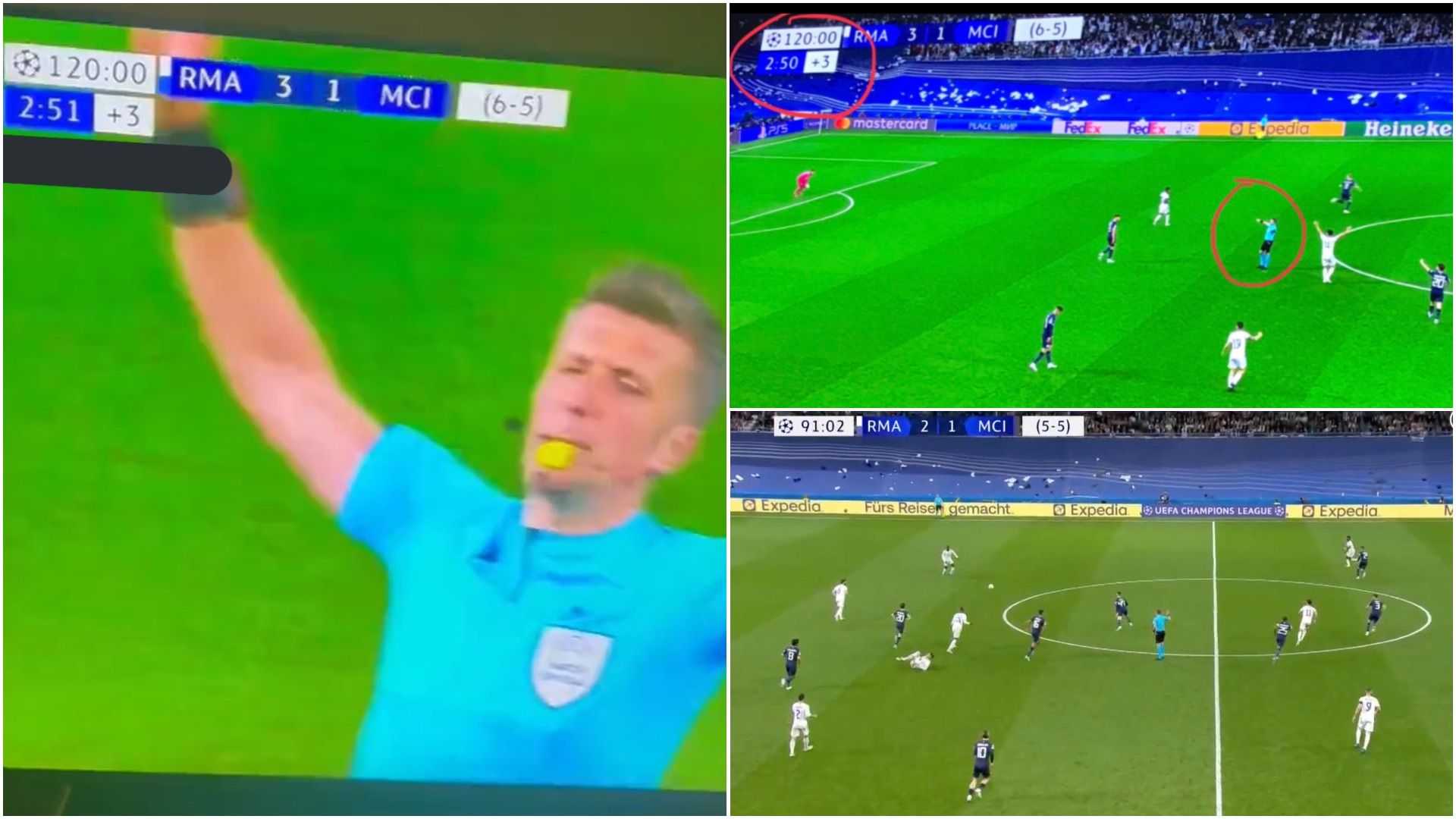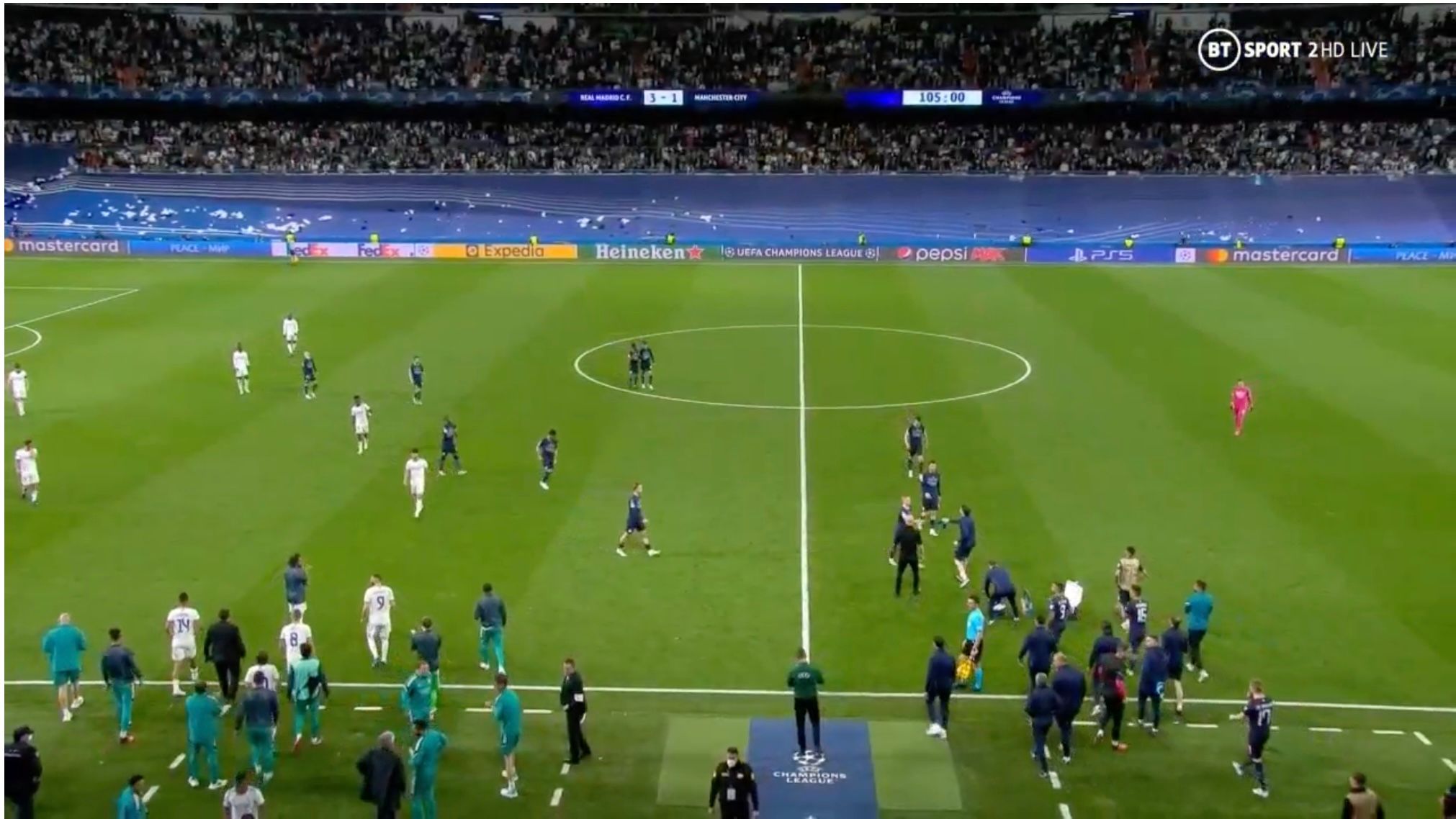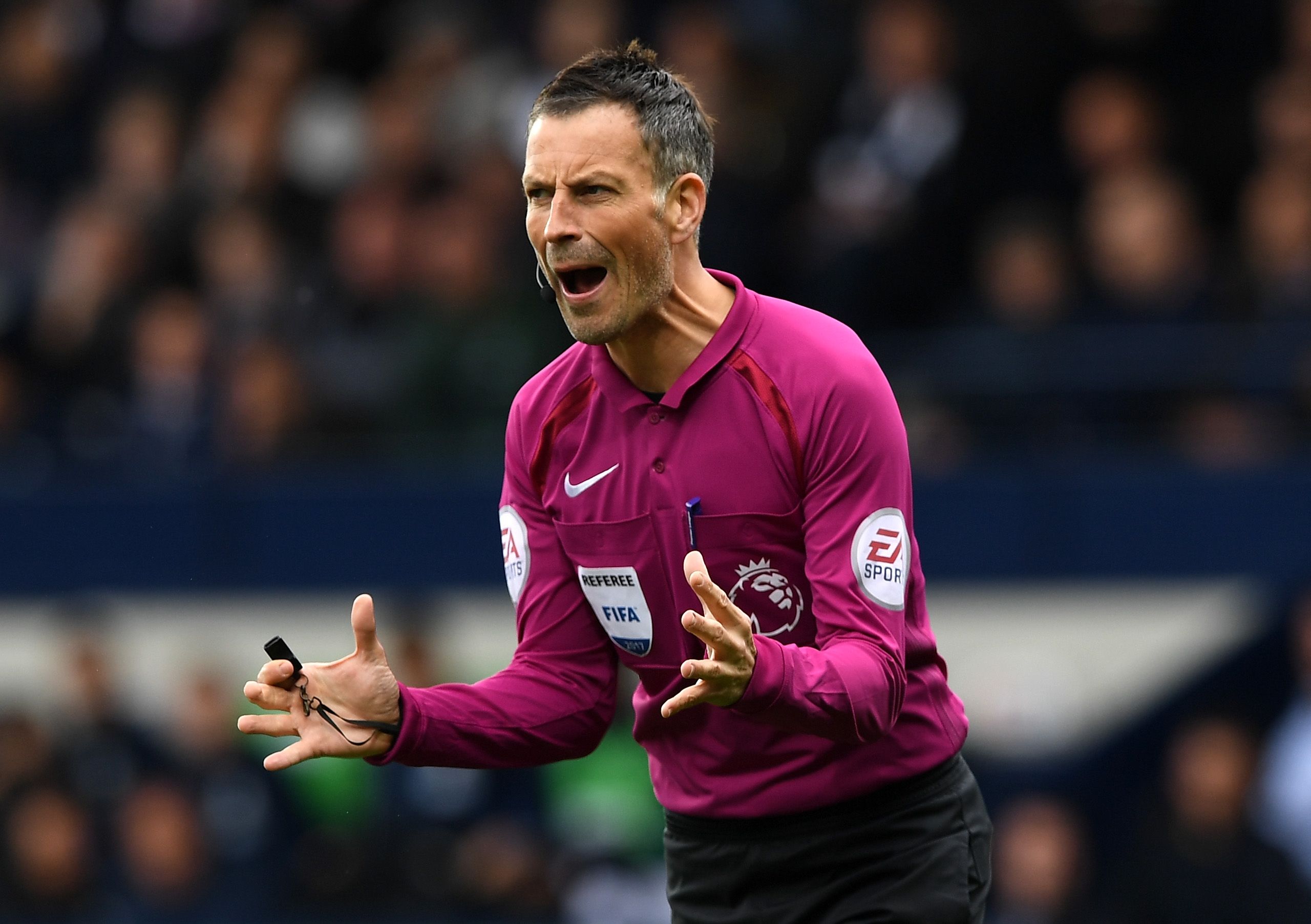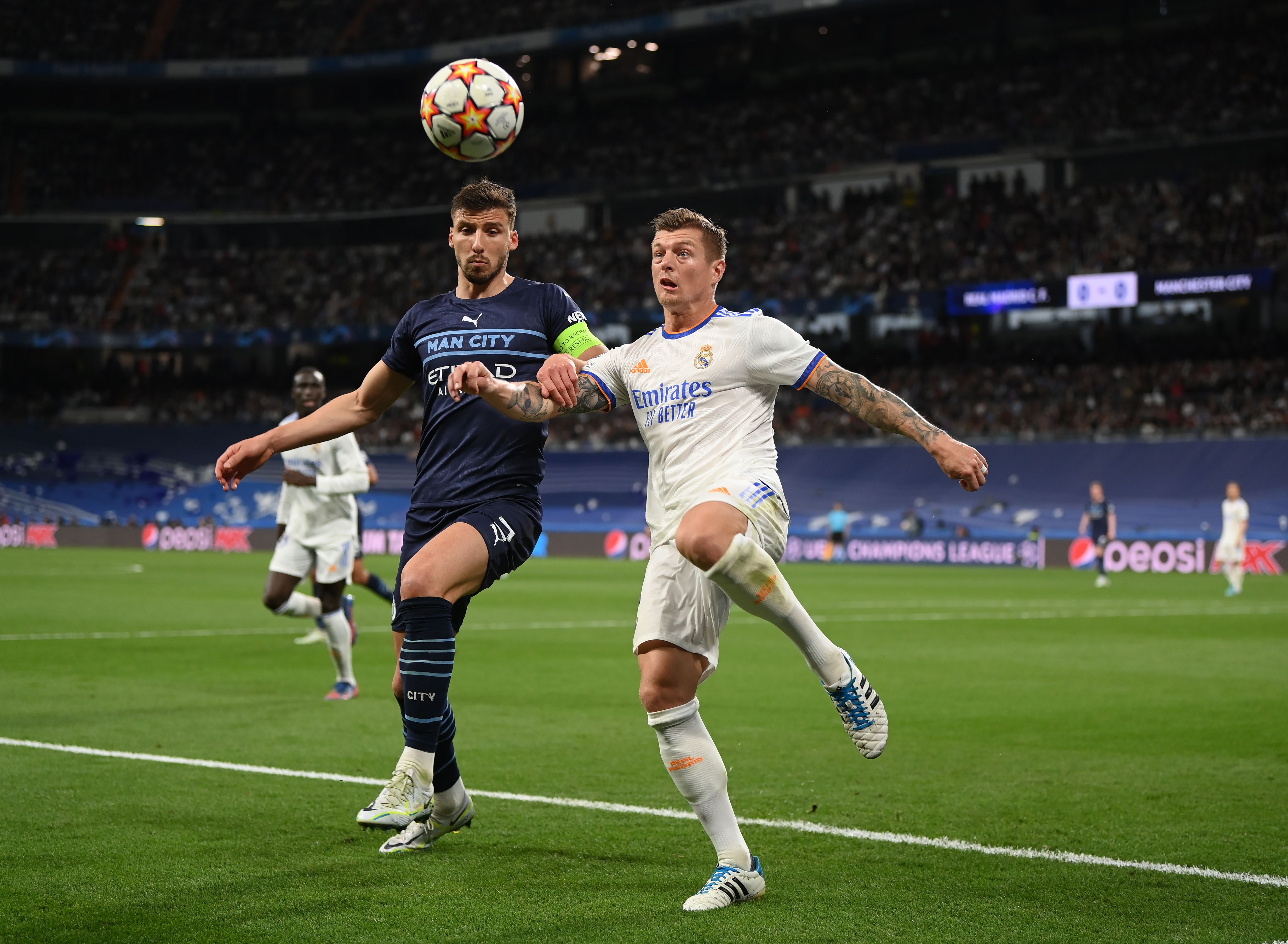Former referee Mark Clattenburg has called for a revolutionary change in football following Real Madrid’s 3-1 victory over Manchester City in the Champions League.
Madrid completed one of the most extraordinary turnarounds in recent years with two dramatic late goals through Rodrygo.
The tie subsequently went to extra-time and Karim Benzema fired his side through to the Champions League final with his 15th goal of this season’s competition.
Rodrygo scored his crucial second goal of the night during the six minutes of stoppage-time that were added at the end of normal time.
That only three minutes of stoppage-time were added at the end of a stop-start 30-minute period of extra-time, though, came as a surprise to many.
And there was further controversy when referee Daniele Orsato blew his whistle before the full three minutes were up.
What changes in football is Mark Clattenburg calling for?
Writing in the Daily Mail, Clattenburg believes football would benefit from a basketball-style stop-clock, with time added on each time there’s a stoppage.
To avoid the scenario of matches potentially lasting for hours, the ex-Premier League match official wants to see games reduced in length from 90 to 60 minutes.
“We referees know stoppage time is a contentious subject. The winning team want less - the losing team want more,” Clattenburg said.
“Given how Real Madrid's players were milking every second they could in the second half of extra time in the Champions League on Wednesday night, Manchester City were less than thrilled that only three minutes were added on.
“They were even less impressed when the full-time whistle was blown 10 seconds short of that time.”
Clattenburg added: “I think there's a solution to all of this and that's 60-minute matches with a stop-clock - an idea which Pierluigi Collina, FIFA and IFAB are currently looking at. It works in basketball and it could work in football, too.
“The clock is paused when the ball goes out of play, for example, or there's an injury causing a delay, or a referee is issuing a yellow card and dishing out a talking-to.
“That way, every game would last the same length and we'd get rid of this controversy.
“In the Premier League this season, the average time of the ball being in play has been 55 minutes, three seconds.
“The shortest was West Ham versus Brentford - 41 minutes, 33 seconds - whereas the longest was Manchester City against Burnley - 65 minutes, 42 seconds.
“That's a big difference but the 60-minute clock would stop that and guarantee paying punters that they at least get to see an hour of football on the pitch.
“It's a conversation that our sport should be having, and one which would mean the debate over Daniele Orsato's three minutes at the end of extra time wouldn't need to be had in the aftermath of City's collapse in Madrid.”
WEST BROMWICH, ENGLAND - APRIL 29: Referee, Mark Clattenburg reacts the Premier League match between West Bromwich Albion and Leicester City at The Hawthorns on April 29, 2017 in West Bromwich, England. (Photo by Shaun Botterill/Getty Images)
Time for change in football?
It’s certainly an interesting proposal.
Football fans are reluctant to embrace change and many will automatically dismiss Clattenburg’s suggestion without giving it much thought.
However, it’s clear more needs to be done in order to combat time-wasting and to ensure that the ball is in play for longer during games.
MADRID, SPAIN - MAY 04: Toni Kroos of Real Madrid battles for possession with Ruben Dias of Manchester City during the UEFA Champions League Semi Final Leg Two match between Real Madrid and Manchester City at Estadio Santiago Bernabeu on May 04, 2022 in Madrid, Spain. (Photo by Michael Regan/Getty Images)






















